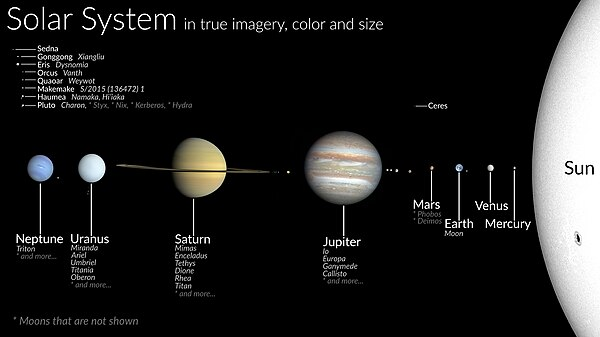The Bias in Naming Planet’s Surface Features: A Call for Inclusivity
Introduction
The guidelines for naming a planet’s surface features have come under scrutiny for their lack of inclusivity and bias towards men. Recent research has revealed that less than 2% of Mars’s craters and only 2% of known Moon craters bear a woman’s name. This issue has prompted discussions on the inherent disadvantages faced by women and marginalized groups in the field of planetary nomenclature. In this article, we will explore the current state of naming planetary features and delve into the calls for greater diversity and inclusivity in this process.
The International Astronomical Union’s Database
An analysis of the International Astronomical Union’s (IAU) database reveals the stark underrepresentation of women in the naming of planetary features. Annie Lennox, a doctoral researcher at The Open University, highlights the male-biased culture of naming planetary features as a factor that inherently disadvantages women and marginalized groups. The IAU, an international association of professional astronomers, plays a significant role in establishing guidelines and working groups to propose and approve names for specific features.
The Gender Disparity in Crater Names
Craters, one of the distinct features on a planet’s surface, often serve as a canvas for celebrating achievements. However, the historical convention of naming craters after famous scientists has perpetuated a lack of diversity and inclusivity. Italian astronomer Giovanni Battista Riccioli initiated this practice in 1635, which continues to be upheld by the IAU. As a result, women and marginalized groups have been largely excluded from this recognition. Lennox’s research reveals that only a fraction of craters on the Moon, Mars, and Mercury bear female names.
Women’s Representation in Crater Names
While the Moon and Mars exhibit a particularly low representation of women in crater names, Mercury fares slightly better. Lennox’s research indicates that 11.8% of craters on Mercury bear female names. This improvement might be attributed to the more recent exploration of Mercury and the increasing number of women working in science, technology, engineering, and mathematics (STEM) fields.
The Mythology and Arbitrary Naming of Craters
Another issue arises in the naming of craters on Venus, where all the crater names have a female origin. However, Lennox points out that only 38% of these names are associated with real women who made substantial contributions to society. This discrepancy suggests that the emphasis on recognition and fame in naming conventions further disadvantages women and marginalized groups.
The Impact of Biased Naming Policies
The current conventions set by the IAU regarding the naming of planetary features resonate throughout the scientific community. These guidelines influence the diversity and inclusivity within nomenclature choices. Lennox argues that the systemic underrepresentation and undervaluation of women and marginalized groups manifest in today’s scientific systems. The biased naming policies perpetuate historic injustices and hinder progress towards a more inclusive scientific community.
A Call for Change
Annie Lennox’s open letter published in the journal Nature Astronomy urges the IAU to reassess its naming policies and make them more inclusive. She highlights the need for proactive steps to address the underrepresentation of women and marginalized groups in the naming of planetary features. Lennox advocates for a shift away from the current conventions that prioritize fame over contribution and perpetuate biases.
Analyzing Names Across the Solar System
Lennox’s research on crater names served as a starting point for a larger project. She is collaborating with teams worldwide to analyze every named feature in the solar system. This extensive endeavor aims to shed light on the representation of women and marginalized groups in the broader context of planetary nomenclature.
Promoting Diversity and Inclusivity
To achieve greater diversity and inclusivity in the naming of planetary features, it is crucial to revisit the guidelines set by the IAU. The current emphasis on historical figures and mythology should be expanded to include names of women and marginalized individuals who have made significant contributions to science and society. By recognizing and celebrating diverse achievements, the scientific community can create a more inclusive and equitable environment.
Guidelines for Inclusive Naming
Revising the guidelines for naming planetary features should involve establishing criteria that prioritize the contributions of women and marginalized individuals. It is essential to encourage diversity in the selection process and ensure that the names chosen reflect the true diversity of scientific achievements. These guidelines should also address the representation of individuals from different cultural backgrounds and underrepresented communities.
Engaging the Scientific Community
Inclusivity in the naming of planetary features requires the involvement and engagement of the scientific community. It is crucial to create platforms for discussion and collaboration, allowing diverse perspectives to shape future naming policies. By actively involving scientists from underrepresented groups, the scientific community can collectively work towards a more inclusive and equitable system.
Conclusion
The current guidelines for naming planet’s surface features reflect a bias towards men and lack inclusivity. The underrepresentation of women and marginalized groups in the naming of craters and other planetary features highlights the need for change. By reassessing the conventions and actively promoting diversity and inclusivity, the scientific community can create a more equitable system that recognizes the contributions of all individuals, regardless of their gender or background. It is time for the International Astronomical Union and the scientific community as a whole to embrace a more inclusive approach to naming planetary features.
